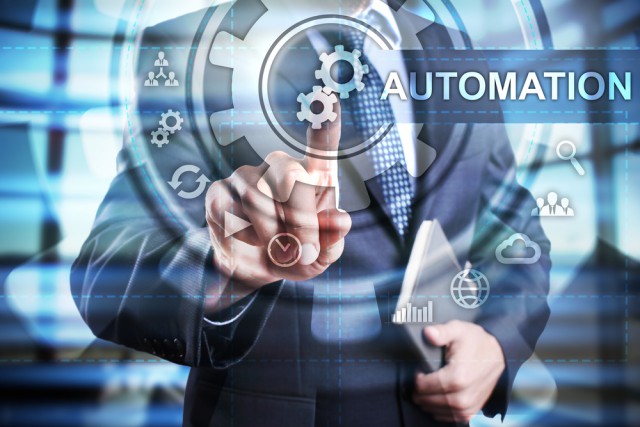Will automation rule over human interaction thanks to the coronavirus?

Thanks to advancements in technology, the need for human interaction -- when you shop for groceries, book a taxi, order a takeaway or watch the latest blockbuster -- has gone from necessity to nice-to-have, with self-service checkouts, apps to order cabs and kebabs, and streaming services all examples of automation that have everyday use.
Despite its influence on consumer behaviors, one of the perceived downfalls of automation is the limit it has on the reliance for humans to carry out certain tasks and jobs. A debate that has, and will, rage on for quite some time. But, with the current coronavirus pandemic, will automation become more of a necessity as we come to terms with social distancing and what life might be like in the future? Here we look at the role automation could play in the fight against COVID-19 and beyond.
Will automation be best for business?
Cities and communities effectively turned into ghost towns in March when the World Health Organization reclassified coronavirus as a global pandemic. Tourist hotspots, restaurants, entertainment venues, and workplaces shut, with people instructed to stay at home.
In the UK, we saw the introduction of the job retention scheme to help ease the fears of businesses who were left to wonder how they would pay their staff and stay afloat. Originally set to last until July, the scheme has now been extended to October -- an indication that economic impacts of the virus will be felt for some time.
It’s anyone’s guess as to whether businesses -- who rely on humans to come to work and carry out manual tasks -- will be able to survive in a post-coronavirus recession. Will it force company bigwigs to invest in automation to boost their chances of longevity and success?
A study carried out in April by auditing firm, EY, showed that almost half of bosses in 45 countries are speeding up plans to introduce automation, with the likes of Amazon and Ocado already using robots in customer fulfillment centers. A challenge that car manufacturers face is a reduction in available staff on their shop floors, which comes with health and safety concerns, and the need for new ecosystems to achieve efficient production. This may see a continued turn towards automation to aid the build of new vehicles.
It’s almost inevitable that we will see an increase in automation across different industries, both during and after Covid-19. To what extent is unknown, but it could play a key role in the way we dine at restaurants, check-in to hotels, and everything else in-between.
Will we automate to help the environment?
With time more plentiful now, you may be asking yourself the question, "How has coronavirus helped the environment?". In the short-term it’s had a positive impact, with carbon emissions dramatically falling, creating cleaner air in the process.
You may have seen flamingos thriving off quieter roads and the cleaner air in Mumbai, and mountain goats making themselves at home in the streets of Llandundo. But, when this is all over, will our attitudes change, or will we just go back to traveling back-and-forward, pumping out carbon emissions and increasing our carbon footprint again?
If businesses are forced to look towards automation, will consumers look towards it when they choose their next car, for example? Choosing an electric vehicle over petrol or diesel means you won’t need to visit the petrol station to fill up -- eliminating human interaction. Plus, you’ll reduce your carbon emissions to zero when driving. If you have worries over social distancing, knowing that you can e-charge your car at home -- with the right equipment -- it may sway you towards a greener lifestyle.
Year-to-date data for 2020 -- from the Society of Motor Manufacturers & Traders -- shows a 161 percent increase in the registration of fully-electric cars compared to 2019. It’s a small increase, but it shows a potential shift towards a more environmentally friendly future, one that introduces an element of automation at the same time.
Manufacturers have already acknowledged this, with BMW, for example, being committed to having no less than 12 fully-electric models in their line-up over the next three-to-four years, with the German brand potentially offering an electric version of its popular 1 Series as early as 2021.
The fine balance between automation and interaction
Automation is likely to become more prominent in the coming weeks, months, and years, but striking the right balance between automation and human interaction could be key in the short-term if economies are to bounce back and communities to thrive like they did before this turned ugly.
Photo Credit: Wright Studio/Shutterstock
Thomas Bradley is a content writer at Lookers BMW.
